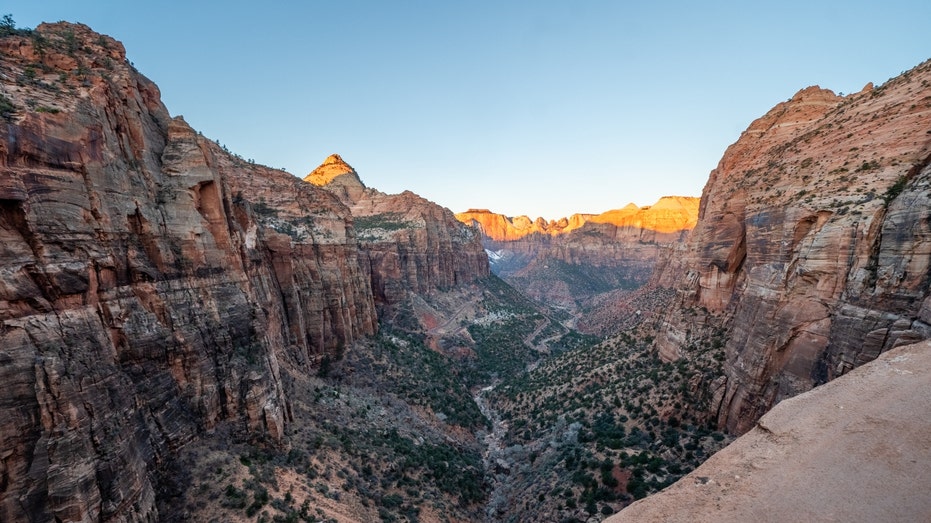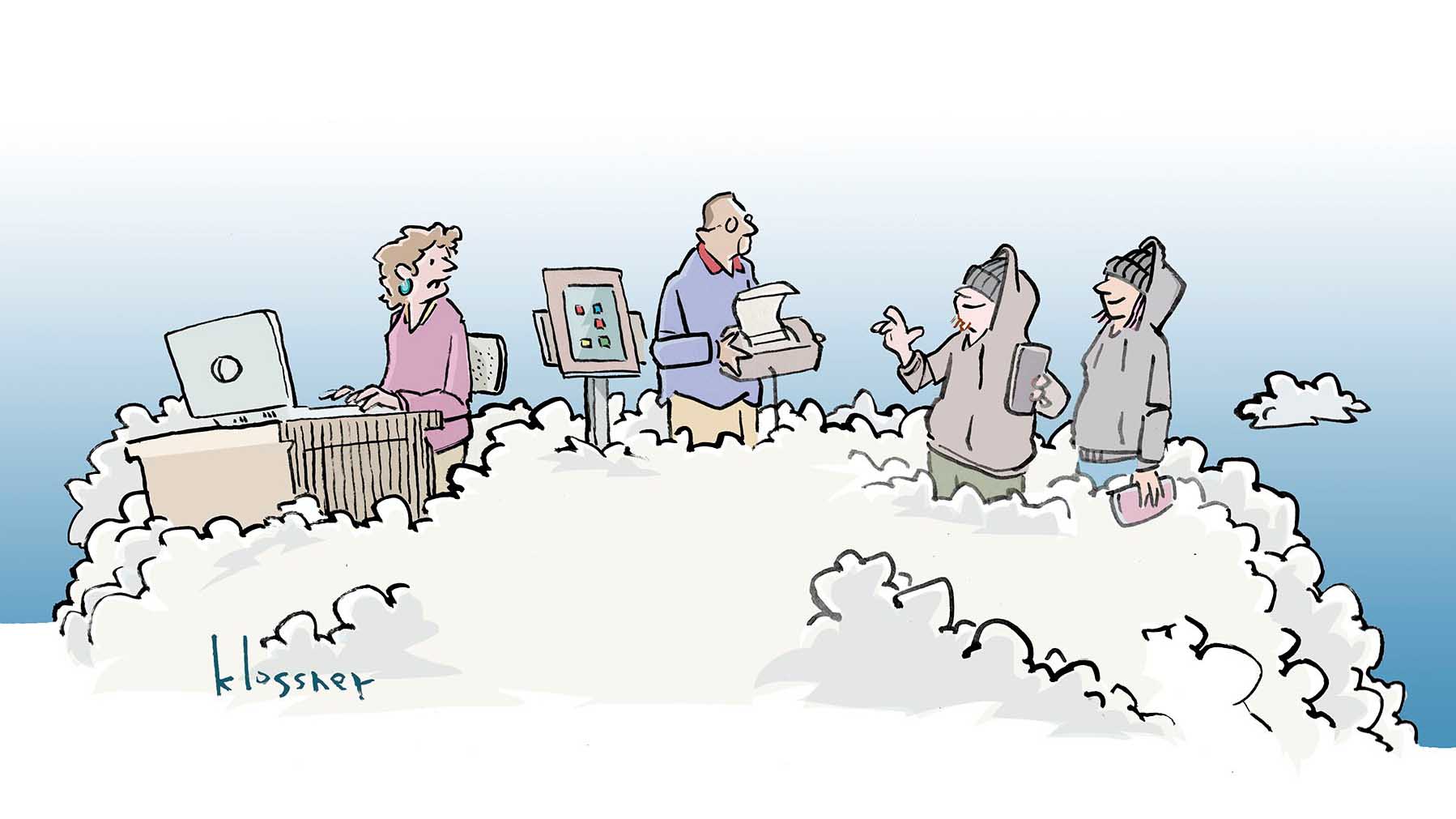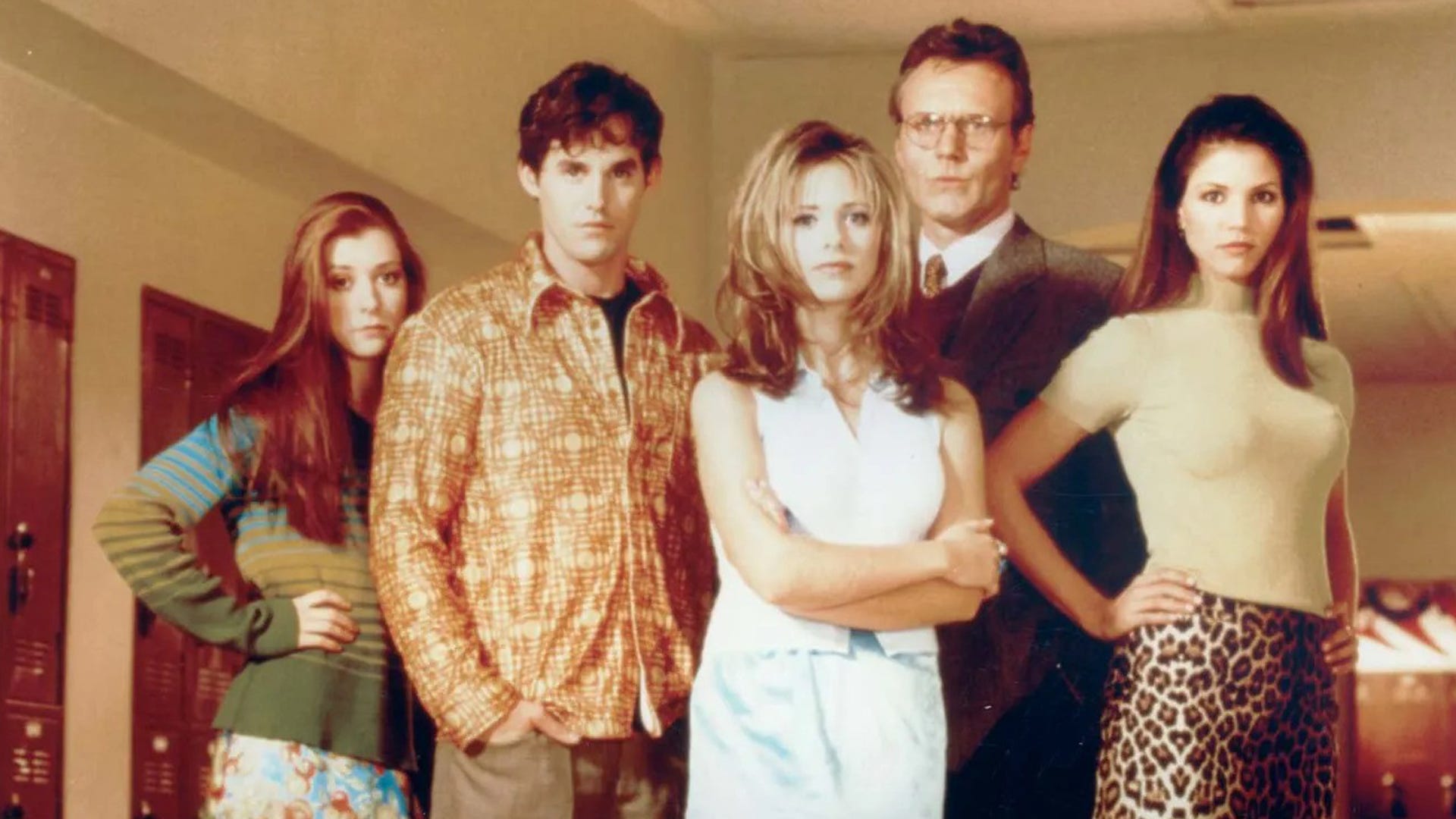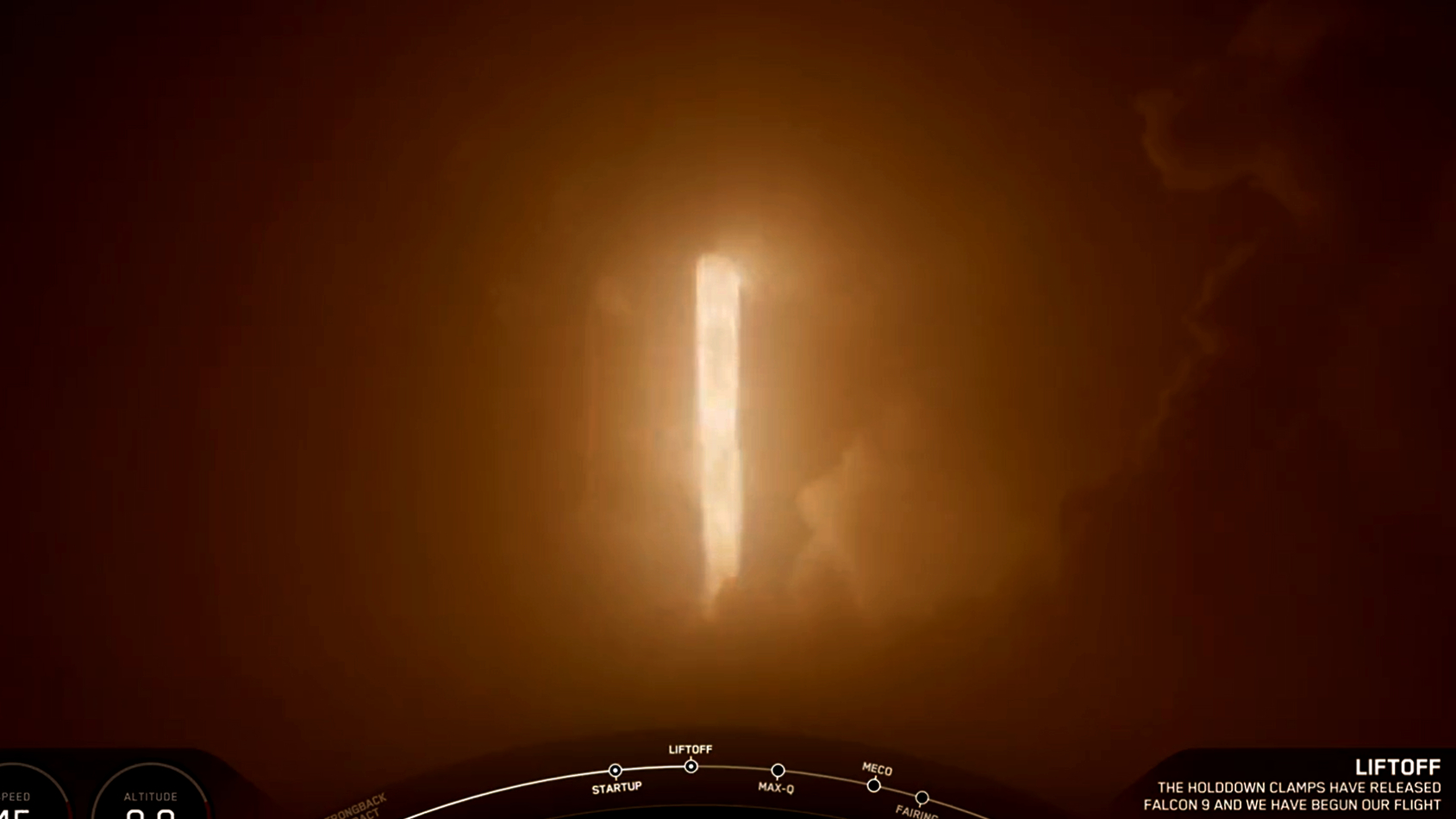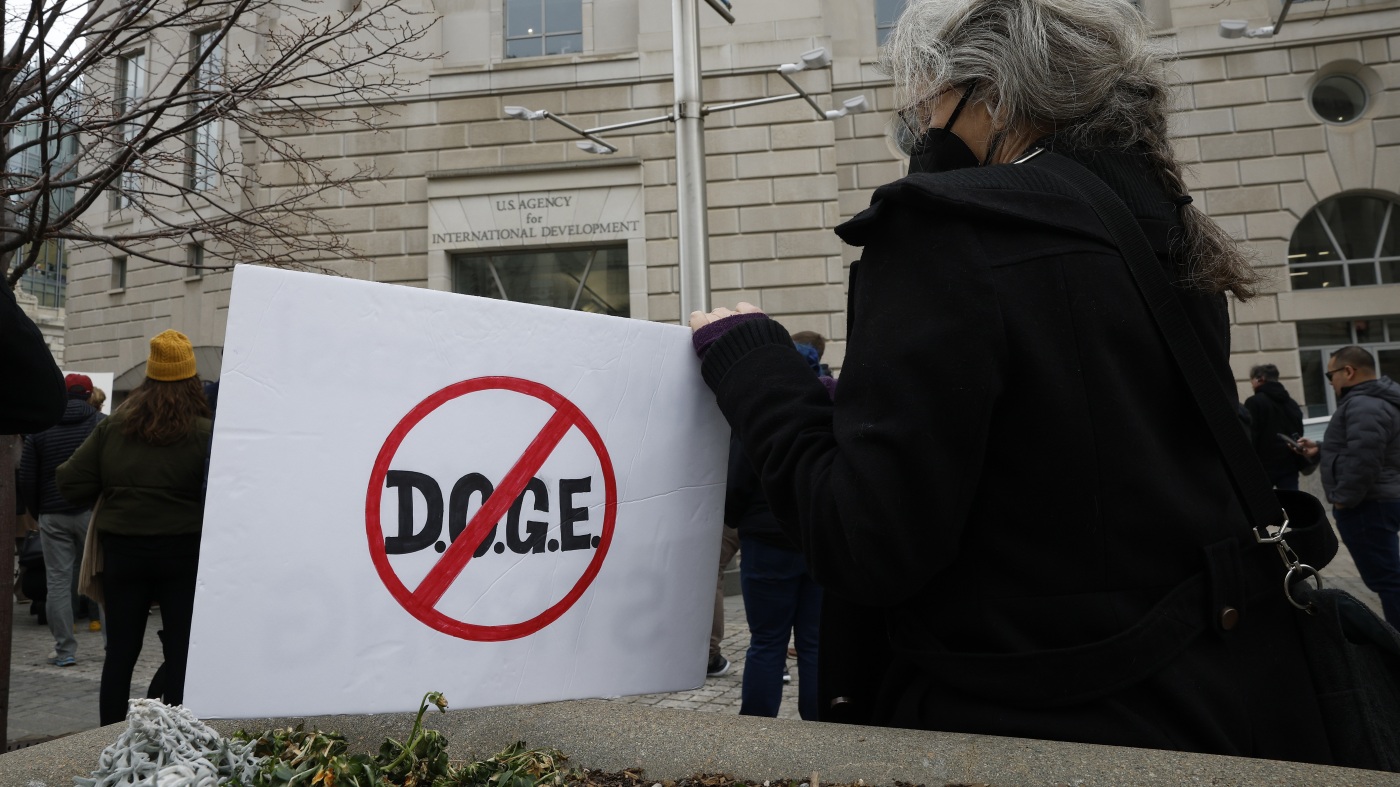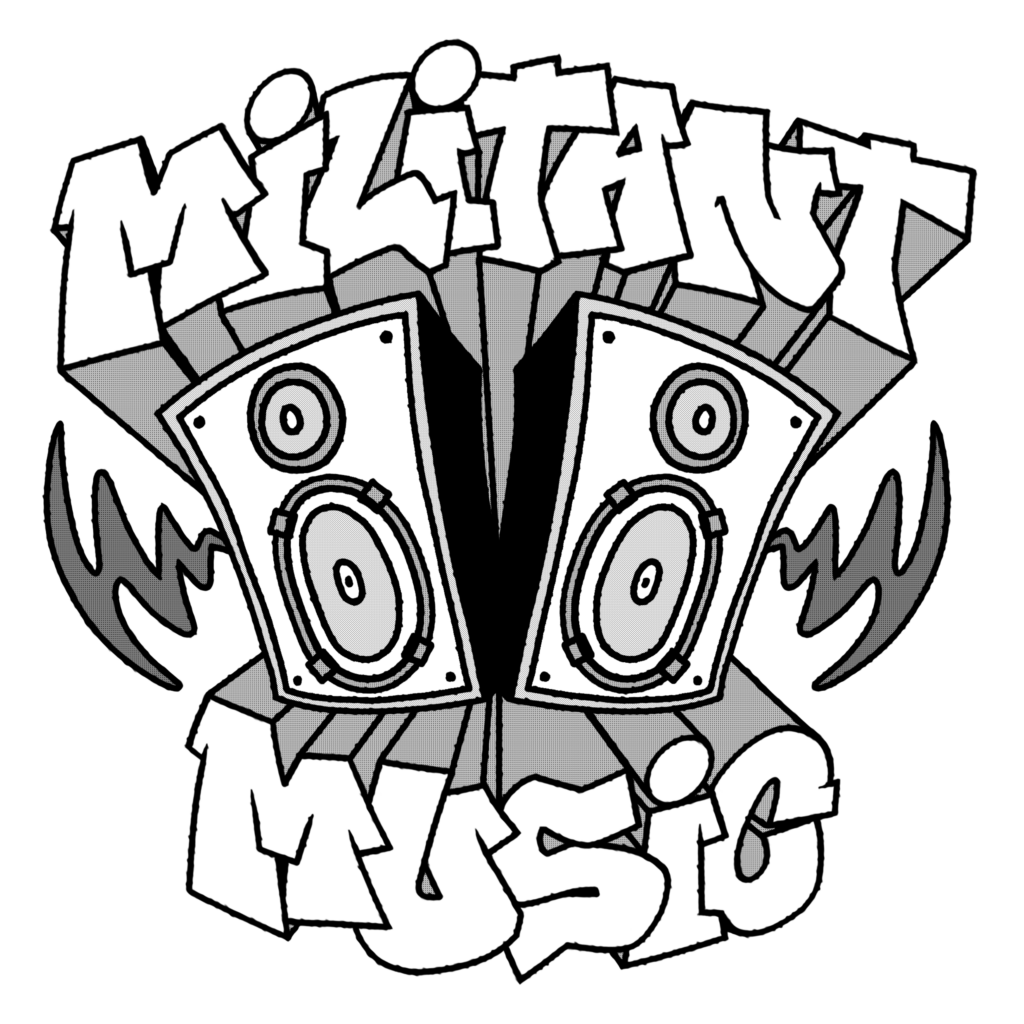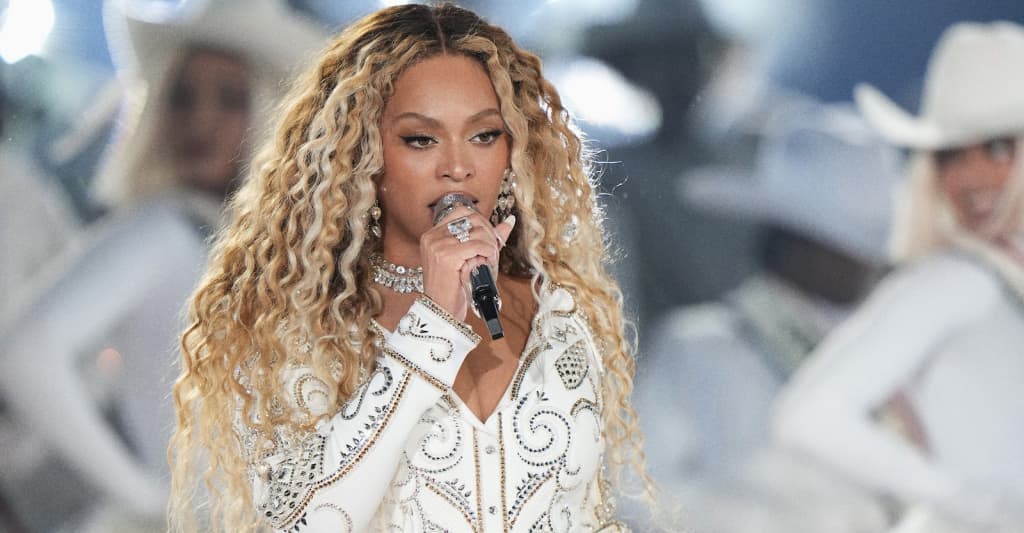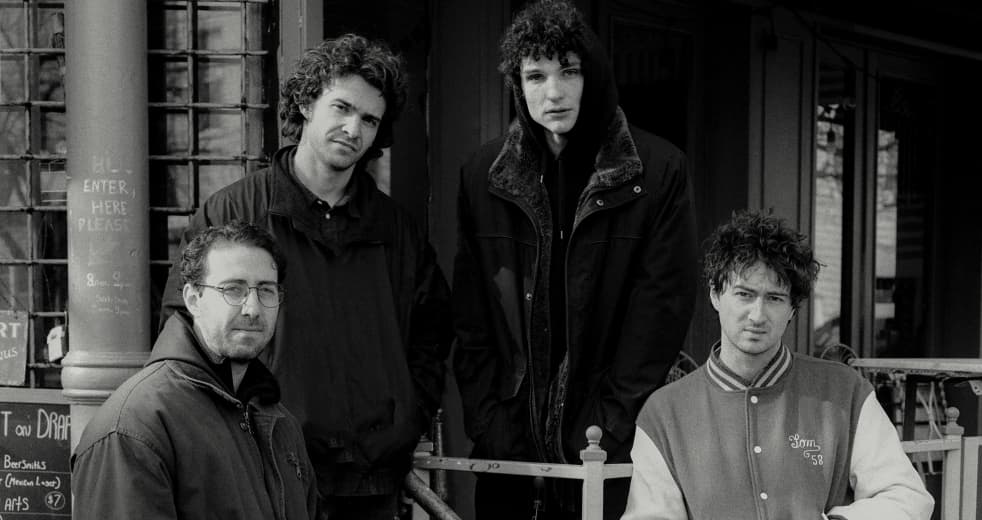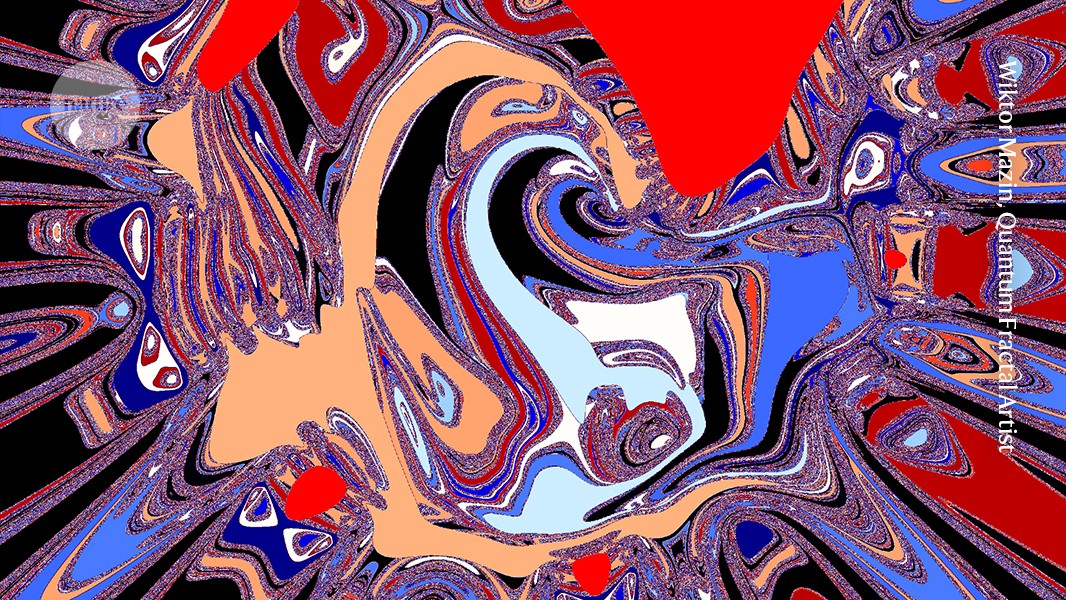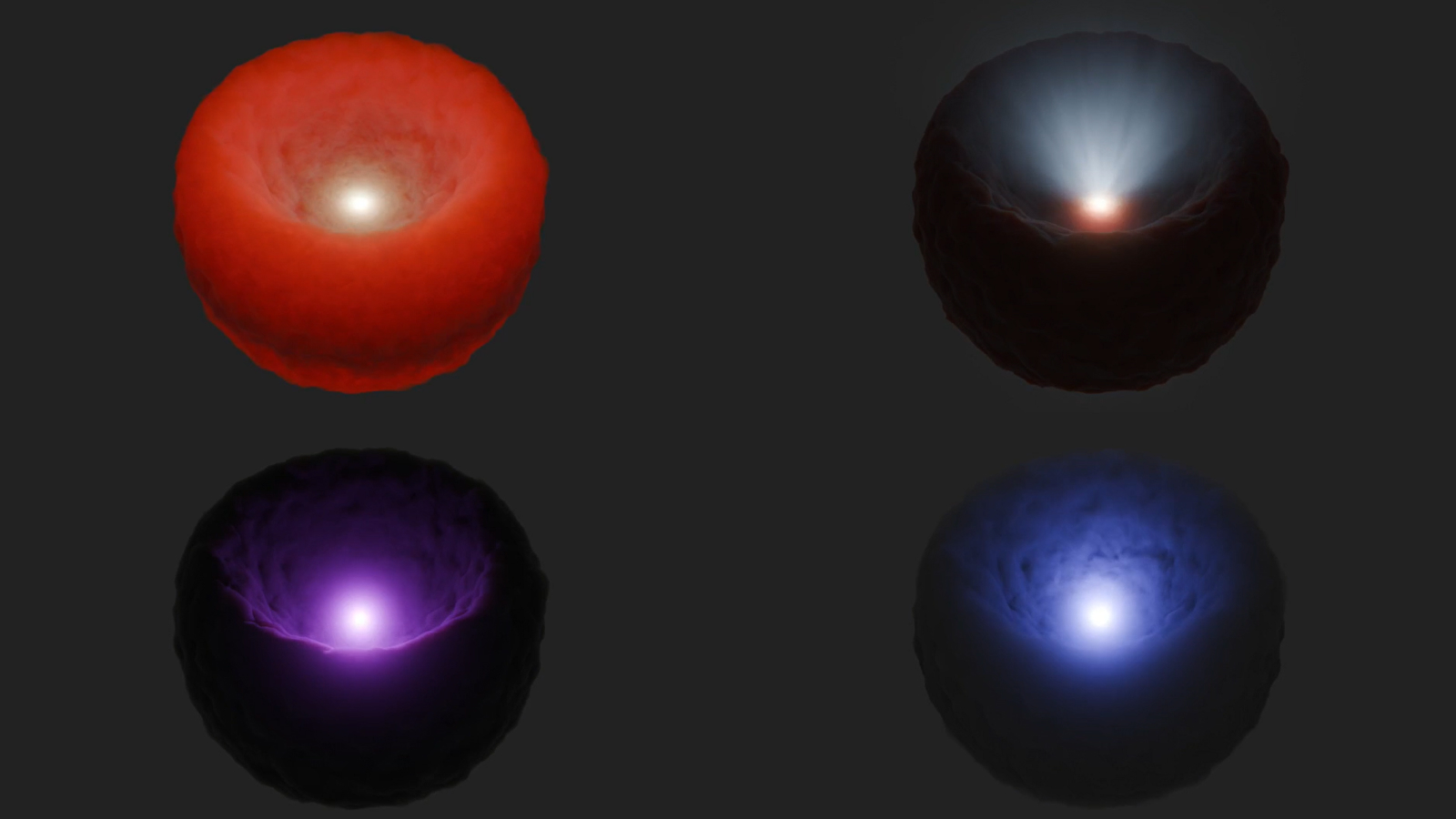Ross Douthat tells us how to choose a faith if you’ve got that “god-shaped hole” (and apparently we all do)
Where do I begin with a piece so ridiculous, so imbued with superstition, and so dependent on seeing “truth” as “what makes you feel good”, that it would take hours to properly dissect it? I suppose I can say that this long op-ed by NYT columnist Ross Douthat, a religious Catholic and a conservative, seems … Continue reading Ross Douthat tells us how to choose a faith if you’ve got that “god-shaped hole” (and apparently we all do)

Where do I begin with a piece so ridiculous, so imbued with superstition, and so dependent on seeing “truth” as “what makes you feel good”, that it would take hours to properly dissect it? I suppose I can say that this long op-ed by NYT columnist Ross Douthat, a religious Catholic and a conservative, seems to be of a piece with a new movement among liberals: softness towards religion. All over the MSM, which includes the NYT and even The Free Press, we see articles telling us—despite the rise of “nones”—that we must have religion to keep society together; and (check the Free Press link), scholars, intellectuals, and public figures like Ayaan Hirsi Ali and Jordan Peterson are become more explicitly religious. They apparently have realized something that’s escaped the rest of us. Examine your belly, and perhaps you’ll see the “god-shaped hole” invariably mentioned in these articles.
In this piece (click below or find the piece archived her , Douthat tells us that, if we’re without faith, we have to fix that situation immediately. And then he tells us how to go about choosing a faith. Speaking personally, I can’t find my god-shaped hole, nor do I feel I need a faith to improve my well being or give meaning to my life. Moreover, I don’t understand how, if I were to follow Douthat’s instructions and find a congenial faith (his is Catholicism, but he says others will do), I could force myself to believe something that I find unbelievable. Perhaps some propagandizing, á la Orwell, could do it, but nobody wants that kind of treatment.
First, though, I give the data from a Pew Survey of America’s “nones”—people without a formal religious affiliation—from 2007 till now. You can see a more or less steady rise over time, with a stasis or even a drop occurring rarely, and then a 3% drop between 2022 and 2023. I suppose that people like Douthat are pinning their “god-shaped hole” hypothesis on this one year of data, as if people in 2022 suddenly realized that their lives lacked meaning without God. But seriously, we’d need more data than this to show that Americans are becoming less religious. My own guess is that “nones” will resume their increase, and then level off at an asymptote that is higher, representing a level of agnosticism or atheism that won’t be exceeded because there are some people that really do need religion or inherit it from their parents.
Remember, too, that some of these “nones” are spiritual, panthesists, or believers in something numinous or supernatural; they’re simply those people unaffiliated with a church. But even atheists and agnostics have grown; as Wikipedia notes in its article on “Irreligion in the United States“:
According to Pew, all three subgroups that together make up the religious “nones” have grown over time: in 2021, atheists were 4% (up from 2% in 2011), 5% agnostics (3% a decade before) and 20% “nothing in particular” (14% ten years before). In 2023, atheists are still 4%.
Here are the nones:
Other countries are even more irreligious: here’s another Pew-file-derived map from 2010: 15 years ago, showing the percentage of “nones. Many countries then, like Australia, Canada most of Western Europe and Scandinavia, and of course China (formerly a godless Communist land) have more nones than America, and this trend is also increasing.

Here’s a figure from the WaPo showing the rise of atheism (not “nones”) in Iceland, and it’s striking: there are more nonbelievers than believers.
As for other countries in Scandinavia, I urge you to read Phil Zuckerman’s book
All this is to show that, at least in the West, religion is on the decline, and people like Douthat ignore all the data showing that. Rather, they are promoting faith because the world is not a particularly great place right now (some of it has to do with Trump, some with the wars in Ukraine and Gaza), and also because they are “believers in belief”, those who either aren’t religious but like the “little people” argument for belief, or, alternatively those who want to justify their own belief by showing how it helped them and could help others. I do think that religion can help some people, like Ayaan Hirsi Ali, who suffered from depression, but that in general it is a societal impairment: a form of delusion that we really can do without (see Pinker’s Enlightenment Now: The case for Reason, Science, Humanism, and Progress).
On to Douthat’s Big Push for Faith:
The first thing he does is to assert, without any proof or links, that religion is on the rise and “nones” on the wane (I urge you to check out the link below):
The long rise of the Nones, Americans with no religious affiliation, has seemingly reached its limit, and a fascination with the numinous shadows our culture once again. Within the intelligentsia there is a wave of notable conversions and a striking nostalgia for belief.
The link goes to a Free Press article full of anecdotes: notable people like Jordan Peterson and Hirsi Ali who have become religious. But of course this says nothing about the general trend. He then dismisses atheism, which is a bad thing to do. Why go looking for the “right” religion for you when there is no evidence for a God? Later Douthat says that we don’t need to find a religion whose epistemic claims are true, but, for crying out loud, it’s a “god-shaped hole” and you must fill it by finding a religion with a god. My definition of religion has always been Dan Dennett’s take from his book Breaking the Spell:
“social systems whose participants avow belief in a supernatural agent or agents whose approval is to be sought”
Now this may not apply to some forms of faith, like Zen Buddhism, but it’s good enough for me as it covers all the Abrahamic faiths as well as faiths like Hinduism. And remember, Douthat is concerned with filling the god-shaped hole to give our lives meaning:
The ultimate goal of the sincere religious quest is a relationship or an experience of grace that can’t be obtained through reasoning alone. But for the open-minded person who hasn’t received divine direction, a religious quest can still be a rational undertaking — not a leap into pure mystery but a serious endeavor with a real hope of making progress toward the truth.
Here we see another problem: Douthat never defines what “truth” is. He dismisses the need to choose religions based on the empirical truth of their tenets, so I suppose he means the slippery notion of a “true” religion is “one that feels right.” And that’s how he largely proceeds in this tedious article.
To dispose of the need for empirical truths when choosing a faith, Douthat simply says that they’re all true in a way, but some are more true than others—that is, some feel more right than others:
The starting place for this endeavor is the recognition that Dawkins is simply wrong about the requirement for believers to disbelieve in every other faith. The bookstore of all religions isn’t necessarily a library of total falsehoods with one lonely truth hidden somewhere on the shelves, and embracing one revelation doesn’t require believing that every other religion is made up.
A sincere believer in Hindu polytheism, for instance, doesn’t need to assume that the singular God of the monotheistic faiths is just a fiction: Jehovah might be one deity among many, whose powers were exaggerated by his adherents but whose deeds were entirely real. Or alternatively a Hindu might interpret his faith’s pantheon as localized expressions of a single ultimate divinity and regard the God of Abraham, Isaac and Jacob as a way of personifying that divinity as well.
. . .So the religious seeker, looking out across a diverse religious landscape, should assume that there exist less-true and more-true schools of thought, not one truth and a million fictions. And this suggests, crucially, that even if you start in what turns out to be a wronger-than-average place, you can still draw closer to ultimate reality by conforming yourself to whatever that tradition still gets right.
What does he mean by “gets right”? But wait! There’s more!
. . . .This principle does not presume that all religions are identical, that there is no scenario in which any soul is ever lost. (Certainly it was not a matter of indifference to Lewis whether people worshiped Aslan or Tash.) The idea, rather, is that if God ordered the universe for human beings, then even a flawed religion will probably contain intimations of that reality — such that a sincere desire to find and know the truth will find some kind of reward.
Yep, any religion can fill part of that hole, perhaps not as neatly as a jigsaw puzzle, but better than atheism could.
He concludes that the more popular religions are more likely to be “true”, but that could be tautological if you define “truth” as “satisfying psychological needs”. I still define “truth” as “what exists in the universe and can reliably be confirmed by others,” or, as the OED says:
Something that conforms with fact or reality.
NOT “something that makes you psychologically satisified”. That definition isn’t in there! Saying the more popular religions are more true is meaningless. Douthat:
This doesn’t imply, however, that a religious search should begin at random. Rather, you should start the way you would in any other arena, by looking for wisdom in crowded places, in collective insights rather than just individual ones, in traditions that have inspired civilizations, not temporary communities.
If this sounds like an argument that the more popular and enduring world religions are more likely than others to be true, that’s exactly what I’m arguing.
Yes, if a new revelation suddenly arrives, there will be a moment when the truest faith will be one of the smallest. But if a faith claims to be much truer than the competition, it’s reasonable to expect proof of those qualities to emerge on a reasonable timeline, to see world-historical and not just individual effects. So for the novice, it makes sense to start with religions in which those effects are already manifest and there’s no question that the faith has staying power.
Here he seems to see “truth” as the OED sees it: a “true” religion makes empirical claims (“conforming with fact or reality”) that are verifiable. But in that case no religion is truer than others! And we all know about the conflicting empirical claims of even the major Abrahamic faiths: who was the prophet, was Jesus resurrected, what miracles were done, and so on.
I don’t want to repeat the criteria Douthat gives for choosing the best faith for you. (For example, if you don’t want too much supernatural stuff, he suggests you choose a more humanistic religion.) But there always has to be a god in it, and absent any convincing evidence for such a being (again, Douthat doesn’t discuss this), I don’t know why you should go choosing a religion in the first place, since all of them (according to my definition) include that supernatural being.
He moves more towards Christianity, of course, because he’s a Catholic.
Or the big question might be: How has God acted in history? In that case, you don’t want to start at the end of things, comparing the systems that the followers of Jesus or Muhammad or Buddha constructed to explain the revelation. You want to start with the taproot — with the allegedly divine person, the allegedly sacred book, the historical credibility of the story and the immediate consequences for the world.
If you have no strong reaction to the core stories, you can step back and use other questions to chart your path. But if you find Jesus to be a remarkable figure and the Gospels shockingly credible, if God speaks to you through the Bhagavad Gita or the Quran or the Pentateuch, if Buddha’s teaching seems like the answer to the riddles of your life — well, you probably shouldn’t simply return to the more abstract questions.
No: If you feel yourself to have a completely open mind and suddenly a specific text or figure leaps out at you, then you should take the possibility that God is speaking to you seriously; at the very least, it’s a signal that this is where you’re supposed to start.
But again: what is the evidence that God exists, much less than he’s speaking to you personally? Finally, Douthat winds up with a story that sort of pulls the reader towards Jesus:
Consider the story of religious pilgrimage offered recently by the British novelist Paul Kingsnorth. Raised to experience his isle’s Christianity as a hopeless antiquarianism, he found that spiritual interests grew naturally out of his environmentalism, which led into a commitment to Zen Buddhism, which lasted years but felt insufficient, lacking (he felt) a mode of true worship.
He found that worship in actual paganism, and he went so far as to become a priest of Wicca, a practitioner of what he took to be white magic. At which point, and only at that point, he began to feel impelled toward Christianity — by coincidence and dreams, ideas and arguments and some stark mystical experiences as well.
But it would have been unimaginable to him at the start of the journey that the Christian faith imparted to him weakly in his childhood — that “ancient, tired religion” as he put it — could have possibly been his destination in the end. Only the act of questing delivered him back to the initial place, no longer old and tired but fresh and new.
Clearly, Kingsnorth found the truth!
In the end, I consider the whole piece worthless given the lack of definition of a “true” religion and the slippery alternation between truth seen as psychological comfort and truth seen in the empirical sense as what really exists. And, of course, shouldn’t you begin your quest with evidence for god in hand?
At the conclusion of the piece, we learn that this spate of advice is taken from an upcoming book by Douthat:
This essay is adapted from the forthcoming book “Believe: Why Everyone Should Be Religious.”
That is one book I’m not going to review. And really, could Douthat tell me why I should be religious? I don’t harbor a god-shaped hole nor do I feel that my life lacks meaning. Douthat just wants to know that he’s in good company, living in a fully religious world.
h/t: Barry


